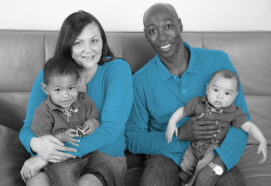This free session was the second of ACAMH’s Adverse Childhood Experiences (ACEs) Special Interest Group Monthly seminars. In this session we discussed ‘Adverse Childhood Experiences for schools – a MindEd e-learning Training’.
There is focus on schools as a key setting to identify and intervene to mitigate the impact of adversity associated with the pandemic, and other stressors, associated with a significant increase in concerning mental health responses. The MindEd training for schools in ACEs is a potentially valuable approach which is firmly rooted in a long-standing approach to working with the adversity which considers not only traumatic responses but also risk, and protective factors.
Slides MindEd overview for ACES presentation Dr. Brian Jacobs
Slides ACES in Schools Dr. John Ivens
ACAMH Members can receive a CPD certificate, simply email and let us know the date and time that you watched the recording.
About the session
Dr. Brian Jacobs, Emeritus Consultant Child & Adolescent Psychiatrist, SLAM, and Dr. John Ivens, Executive Headteacher at the Maudsley and Bethlem Hospital School, presented the basic approach of the training and discuss its application in the Education System.
They discussed; development of resilience, general classroom management, anxiety and distress in the classroom: internalising difficulties, and behavioural issues in the classroom.
The section on ‘Development of resilience’ trains schools in approaches to foster resilience, on how this might apply to work with children and young people. The elements of a trauma-informed approach in schools is discussed and different levels of intervention – general, targeted and specialist, and how these may be delivered in the school context.
The section on ‘General classroom management’ builds on the understanding that the impact of ACEs and associated trauma results in a broad spectrum of emotional and behavioural responses, both externalising and internalising. The dos and don’ts of a ‘trauma-informed compassionate classroom’ are described– the need for a safe place, predictability, trust, choices, maintaining positive emotional and behavioural regulated environment, not punishing behaviour and responses which are trauma symptoms. Guidance is provided for the school as a whole, for connection with families and consideration of staff need, and stressing the importance of ‘multi-disciplinary working’,
‘Anxiety and distress in the classroom: internalising difficulties’ and ‘Behavioural issues in the classroom’. The two most common forms of mental health disturbance in childhood are given detailed attention. Theory and case examples provide much information on how children and young people can be helped within the classroom.
About the speakers
Dr. Brian Jacobs has worked for many years running the children’s inpatient psychiatric unit at the Bethlem Royal Hospital and as a paediatric neuropsychiatrist at the Maudsley Hospital. has chaired the UK Committee responsible for higher child psychiatric training from 2007-2014. He was elected President of the Board for the UEMS-CAP (the section of Child and Adolescent Psychiatry) in 2011. In this role he has led the education functions of the CAP section, including a complete revision of the curriculum for training specialists in child and adolescent psychiatry, producing a new logbook, training requirements, and training governance documents. Brian edited sections of a large e-learning programme (two of several) for a consortium of Royal Colleges, the BPS, Young Minds and The National Children’s Bureau on aspects of child mental health. He has been responsible for the commissioning and editing of 120 x 30 minute sessions accessible through www.minded.org.uk – the project has been funded by the Department of Health.
Dr. John Ivens is a qualified Teacher and Educational Psychologist. He has worked in Secondary and Primary mainstream schools and in the Hospital schools. He is the Executive Headteacher at the Maudsley and Bethlem Hospital School.
About the ‘ACEs SIG Monthly Seminars’
Everyone is welcome to our ‘ACEs SIG Monthly Seminars’ are free online webinars offering insights into the latest evidence-base around ACEs topic base. They are organised by the ACAMH ACE’s Special Interest Group. This SIG was established by ACAMH with representatives from related organisations, to help integrate and develop research and critical understanding of the complex nature of Adversity in Childhood, formulated as ‘Adverse Childhood Experiences – ACEs’ and the implication for practitioners across services for children and young people. The ACEs SIG is free to join, do please consider joining.



